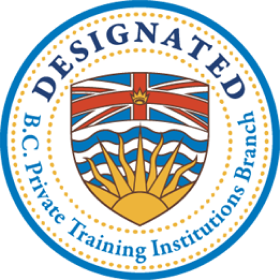GET MORE INFO NOW!!!
Start your journey towards a new career today by requesting program details.
 Financial Assistance
Financial Assistance
 Career Options
Career Options Start Dates
Start Dates Job Opportunities
Job Opportunities

Posted by AOLCC | 12th March 2024

In the heart of every vibrant and thriving community lies a network of dedicated individuals known as community service workers. These professionals play a pivotal role in fostering social cohesion, providing support to those in need, and ensuring the well-being of their communities.
What exactly does a community service worker do, and what are their responsibilities? If you’re considering a future career in this field, this blog post delves into the duties, role, and essence of a community service worker, integrating key insights into their job responsibilities.
We’ll begin by answering the question “What is a community service worker?” A community service worker is a professional tasked with assisting individuals, families, and groups to navigate through life’s challenges. They provide a wide range of services including counseling, social support, and resource allocation to improve the quality of life for people within their communities. These workers operate in various settings, from social service agencies and schools to hospitals and non-profit organizations, each contributing to the fabric of their community’s well-being.
Considering the scale of their duties and responsibilities to their immediate society, the community service worker job can be challenging, but it can also be highly rewarding. This role requires a blend of empathy, resilience, and dedication. Community service workers are at the forefront of social change, working tirelessly to improve the lives of those they serve and strengthen communal bonds within society.

Providing support and advocating for change are community service worker responsibilities.
Through their diverse responsibilities, from providing direct support to advocating for systemic change, they embody the essence of community service. As society continues to evolve and face new challenges, the role of community service workers will remain invaluable in fostering healthy, inclusive, and vibrant communities.
The duties of a community service worker are diverse and multifaceted, reflecting the complex needs of the communities they serve. Key community service worker responsibilities include assessment and planning, counselling and support, advocacy, and more: Here is a more detailed list:
– Assessment and Planning: Conducting assessments to identify the needs of individuals and communities, and developing plans to address those needs.
– Counseling and Support: Offering emotional support, counseling, and guidance to individuals and families dealing with personal issues or crises.
– Resource Connection: Connecting individuals with community resources and services, such as housing, employment, education, and healthcare.
– Advocacy: Acting as advocates for individuals or communities, working to ensure their needs and rights are recognized and addressed.
– Program Development and Implementation: Designing, implementing, and evaluating programs and services that address community needs.
– Community Engagement: Engaging with community members to promote social inclusion, participation, and cohesion.

Offering emotional support and guidance are also key community service worker responsibilities.
The role of a community service worker extends beyond the provision of direct services to individuals. They are integral in building stronger, more resilient communities through their efforts in empowering individuals, enhancing social welfare, promoting social justice, and fostering community development:
– Empowering Individuals: Empowering people to make positive changes in their lives and to advocate for their own needs and rights.
– Enhancing Social Welfare: Working to improve social welfare policies and practices through research, advocacy, and community mobilization.
– Promoting Social Justice: Addressing inequalities and advocating for social justice, equity, and human rights.
– Fostering Community Development: Facilitating community development initiatives that enhance social and economic well-being.
The duties of a community service worker are diverse and multifaceted, reflecting the complex needs of the communities they serve. Key community service worker responsibilities include assessment and planning, counselling and support, advocacy, and more.
The role of a community service worker extends beyond the provision of direct services to individuals. They are integral in building stronger, more resilient communities through their efforts in empowering individuals, enhancing social welfare, promoting social justice, and fostering community development.
A community service worker is a professional tasked with assisting individuals, families, and groups to navigate through life’s challenges. They provide a wide range of services including counseling, social support, and resource allocation to improve the quality of life for people within their communities.
Are you interested in our community service worker program?
Contact AOLCC BC for more information.
Start your journey towards a new career today by requesting program details.
This fun, online quiz takes 3 minutes to complete and you’ll get a personalized report. Identify your strengths and social style plus the training and positions you’re best suited for.Get Your Career Training Readiness Score Now

B.C. Private Training
Institutions Branch

B.C.
Education
Quality Assurance
With campuses in four strategic locations, AOLCC is your go-to career college in BC
Each AOLCC campus serves as a local hub for career skills training and community connection. Whether you are searching for colleges in Kamloops, BC, colleges in Nanaimo, BC, or a career college in Kelowna, our campuses are easily accessible and connected to local employers.
699 Victoria Street
A welcoming, centrally located campus in the heart of the city
347 Leon Avenue
Serving the Okanagan with flexible programs for career starters and changers
1551 Estevan Road
Conveniently located for students on Vancouver Island seeking certificate programs
754 Goldstream Avenue
Offering diploma and certificate programs to students in Greater Victoria and beyond
Our campuses are accessible via public transit, and many offer nearby parking options. If you’re looking for career training in other BC locations, we can connect you with our extended AOLCC network.

